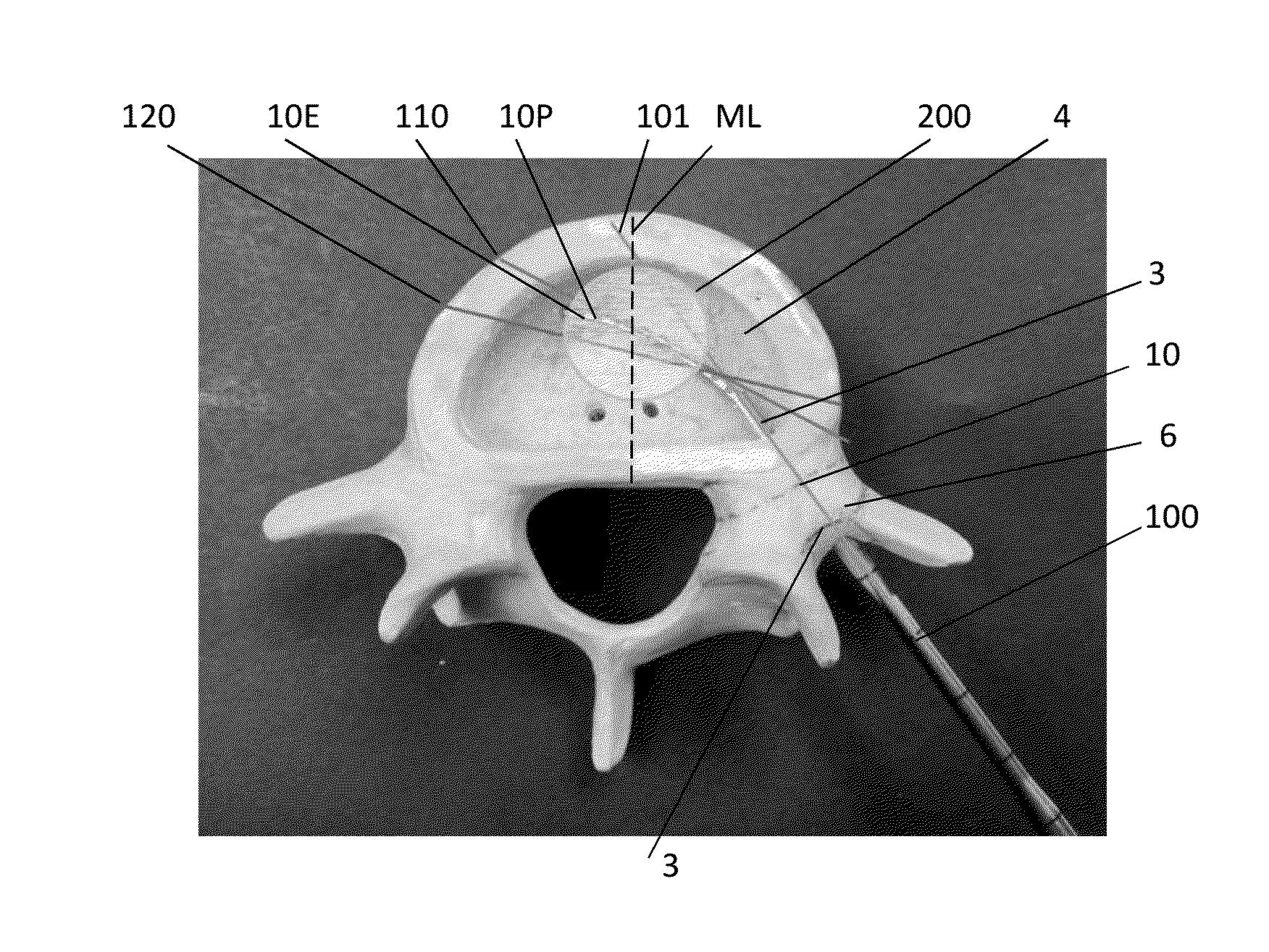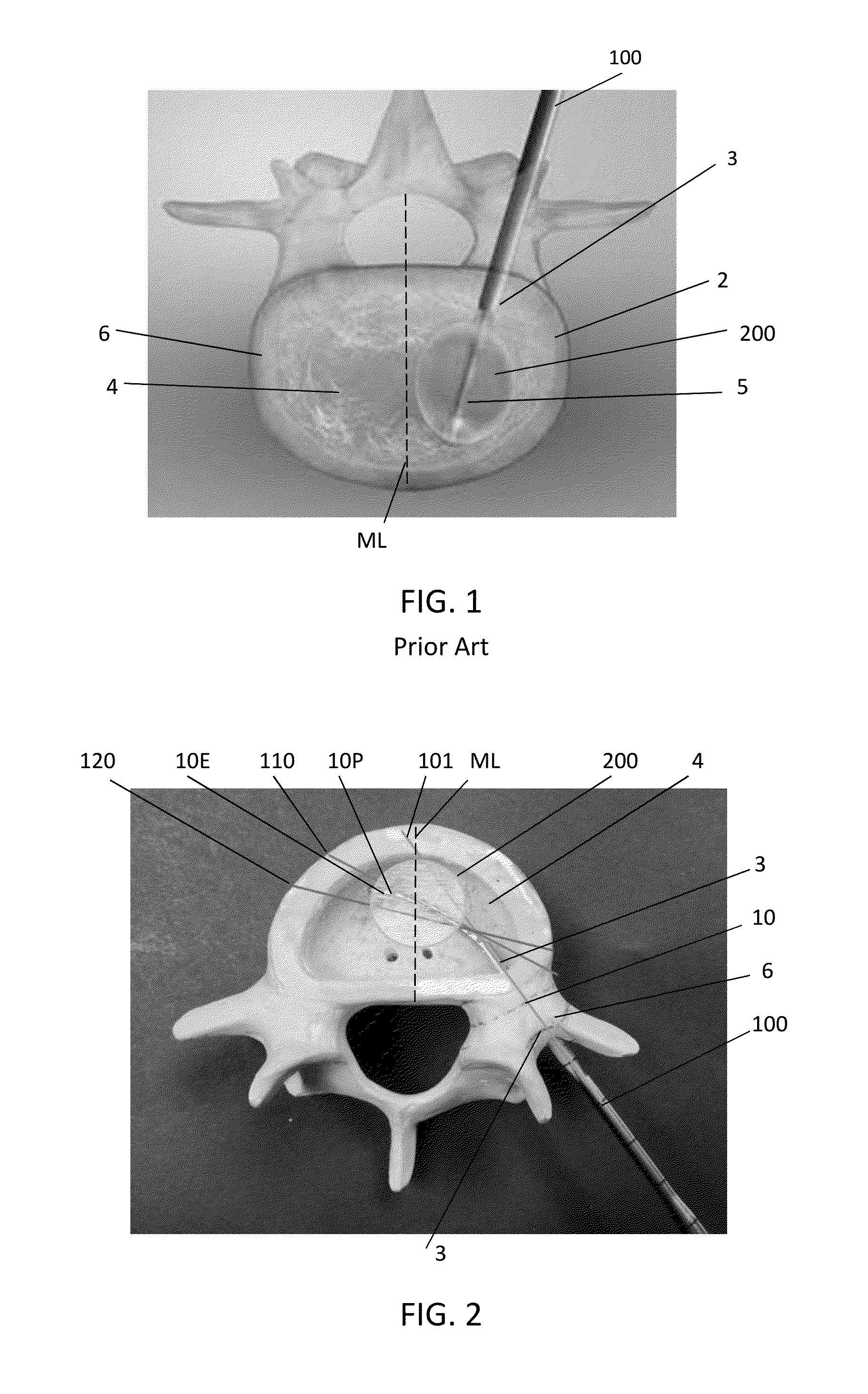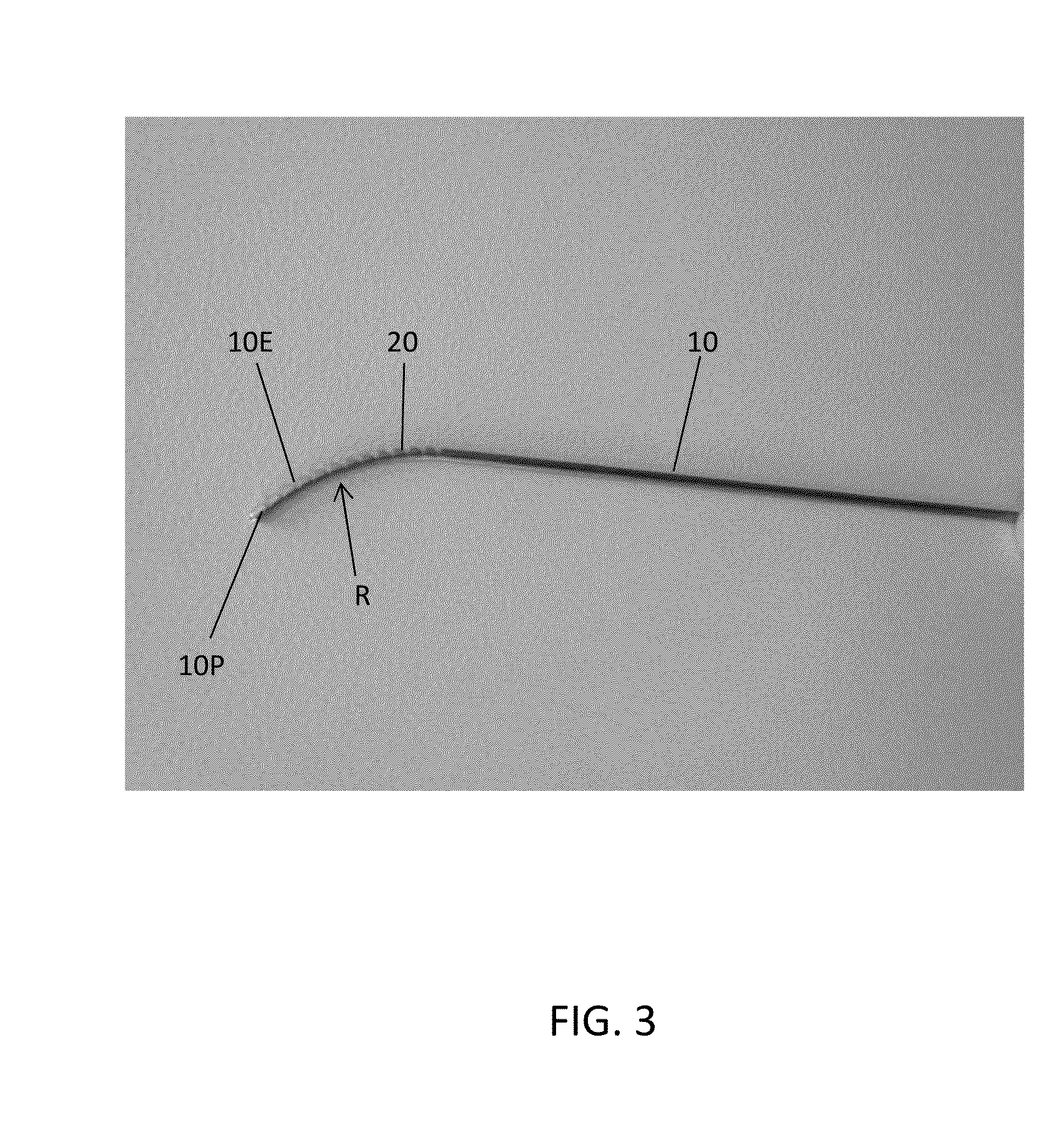Tunneling device
a technology of tunneling device and windshield wiper, which is applied in the field of tunneling device, can solve the problems of only turning or bending the device, affecting the treatment effect, and affecting the patient's recovery,
- Summary
- Abstract
- Description
- Claims
- Application Information
AI Technical Summary
Benefits of technology
Problems solved by technology
Method used
Image
Examples
Embodiment Construction
[0026]With reference to FIG. 1, a balloon tamp 200 is shown extending through a guide sleeve or cannula 100. The balloon tamp 200 is shown in an inflated condition. The balloon tamp 200 when expanded, compresses the soft tissue or cancellous bone 4 such that a void cavity 5 is created. When the straight line incision or opening 3 is created for the guide sleeve 100, it is known that the balloon tamp 200 when projecting inwardly on a straight line path is off center of the vertebrae. By being off the midline ML, the cavity 5 created is biased to the left or right side of the midline ML. As a result of this alignment relative to the midline ML, it is important that two openings are provided and a secondary procedure is applied on the opposite side (not illustrated). When that occurs, two cavities 5 are created to help stabilize the bone when bone cement or bone filler is added to the vertebral body 2 in a kyphoplasty procedure. By requiring two openings 3 to be created, the patient is...
PUM
 Login to View More
Login to View More Abstract
Description
Claims
Application Information
 Login to View More
Login to View More - Generate Ideas
- Intellectual Property
- Life Sciences
- Materials
- Tech Scout
- Unparalleled Data Quality
- Higher Quality Content
- 60% Fewer Hallucinations
Browse by: Latest US Patents, China's latest patents, Technical Efficacy Thesaurus, Application Domain, Technology Topic, Popular Technical Reports.
© 2025 PatSnap. All rights reserved.Legal|Privacy policy|Modern Slavery Act Transparency Statement|Sitemap|About US| Contact US: help@patsnap.com



